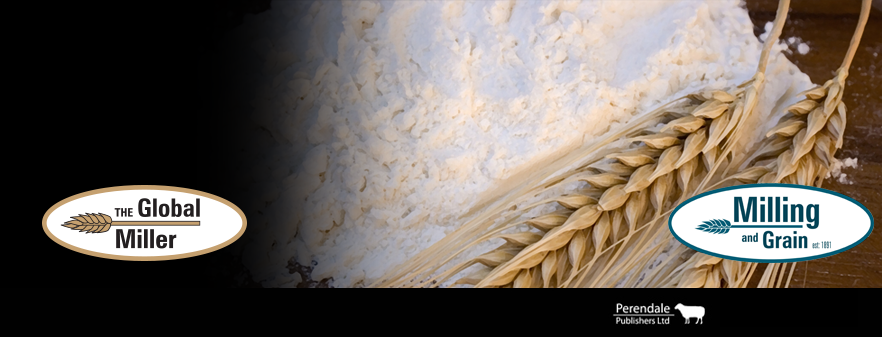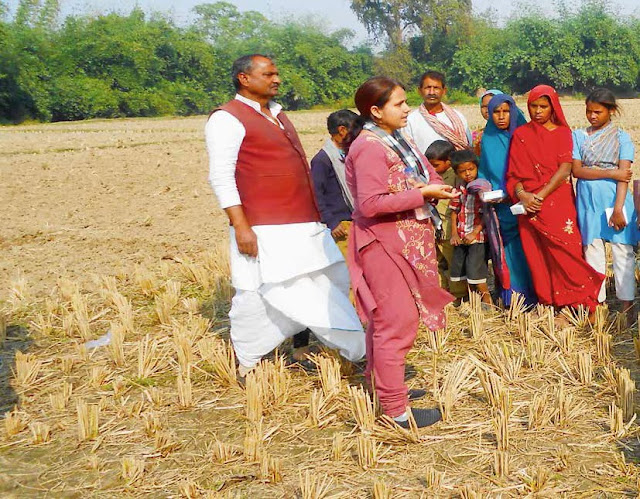The International maize and wheat improvement centre (CIMMYT) celebrates 'Super Women' of Maize and Wheat
by Julie Mollins, CIMMYT
First published in Milling and Grain, April 2015
(Update: Paula Kantor sadly died on May 13, in the aftermath of a terrorist attack on the hotel where she was staying in Kabul, Afghanistan. Her work had also taken her into the world of aquaculture in developing countries, and you can see the tributes on The Aquaculturists blog HERE and HERE.)
Women make up just over 40 percent of the agricultural labour force in developing countries, a number that varies from about 20 percent in Latin America to 50 percent in parts of Africa and Asia, and exceeds 60 percent in a few countries, according to the U.N. Food and Agriculture Organisation.
The International Maize and Wheat Improvement Centre (CIMMYT), which conducts various gender-focused research projects, launched a social media crowdsourcing campaign on International Women’s Day to celebrate the achievements of women in agriculture.
The campaign led to more than a dozen published blog story contributions about women in the maize and wheat sectors.
CIMMYT asked readers to submit stories about women who have made a difference in the maize and wheat sectors, including women involved in conservation agriculture, genetic resources, research, technology and related socio-economics.
The 'Who is Your Maize or Wheat Super Woman?' stories are featured on the CIMMYT website HERE.
Contributions include blog stories about women from Britain, Canada, Guatemala, India, Indonesia, Kenya, Mexico, and the United States.
Jessica Rutkoski conquers math demons, finds success as wheat breeder
Jessica Rutkoski’s focus is on improving all traits of wheat, including crop-yield increases, disease and disease resistance in wheat, focusing on stem- and leaf-rust pathology. She also programs and analyses data using statistical and qualitative genetics. Rutkoski is an assistant professor at Cornell and divides her time between teaching and working with the International Maize and Wheat Improvement Center.
Suchismita Mondal develops climate change resilient wheat
Suchismita Mondal’s work in the Cereal Systems Initiative for South Asia (CSISA) project has led to the identification of early-maturing, high-yielding, heat-tolerant lines with 10- to 15-percent superior yields in the heat-stressed environments of South Asia, two of which were released in India while various others are at different stages of testing.
Chhavi Tiwari aids women farmers with zinc-fortified wheat
Chhavi Tiwari, senior research associate from Banaras Hindu University in Varanasi, India, works with the HarvestPlus program with active collaboration and support from the International Maize and Wheat Improvement Center (CIMMYT) to empower women farmers by making them aware of the value of micronutrient-rich wheat. Her on-farm training programs increase their understanding of crop and soil management techniques, aiding in the improved production of wheat varieties high in zinc content. Zinc deficiency is attributed to 800,000 deaths each year and affects about one-third of the world’s population, according to the World Health Organization (WHO).
Paula Kantor engages men to support gender progress
Gender research and outreach should engage men more effectively, according to Paula Kantor, CIMMYT gender and development specialist who is leading an ambitious new project to empower and improve the livelihoods of women, men and youth in wheat-growing areas of Afghanistan, Ethiopia and Pakistan.
Eva Villegas developed transformative quality-protein maize
Eva Villegas won the World Food Prize in 2000 with Surinder Vasal for work that improved the productivity and nutritional content of maize, which improved the diets of millions of poor people. The two developed Quality Protein Maize while working at CIMMYT. Villegas was the first woman to win the award. She also created a scholarship fund for “bird boys”, young men hired by CIMMYT to prevent birds from eating experimental crops, by aiding in the creation of the scholarship fund that allowed many of them to complete their education.
Read the magazine HERE.
(Update: Paula Kantor sadly died on May 13, in the aftermath of a terrorist attack on the hotel where she was staying in Kabul, Afghanistan. Her work had also taken her into the world of aquaculture in developing countries, and you can see the tributes on The Aquaculturists blog HERE and HERE.)
The Global Miller
This blog is maintained by The Global Miller staff and is supported by the magazine GFMT
which is published by Perendale Publishers Limited.
For additional daily news from milling around the world: global-milling.com




No comments:
Post a Comment